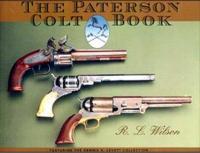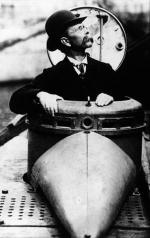 Though today we often take America’s economic power and liberties as given, in Alexander Hamilton’s time neither was guaranteed. Political independence, proclaimed by the Declaration of Independence and won in the Revolutionary War, did not secure economic independence. Long after the British surrendered, America remained heavily dependent on England for virtually everything from clothing to military supplies.
Though today we often take America’s economic power and liberties as given, in Alexander Hamilton’s time neither was guaranteed. Political independence, proclaimed by the Declaration of Independence and won in the Revolutionary War, did not secure economic independence. Long after the British surrendered, America remained heavily dependent on England for virtually everything from clothing to military supplies.
Hamilton believed that political independence was only the first step toward achieving economic independence. He wrote that America would never be free from Britain, nor from any other foreign oppressor, so long as our nation remained dependent on foreign manufacturers.
Hamilton’s Report on Manufacturers called for a wide variety of industries—including cotton, sailcloth, flax, hemp, paper, nails, steel, and ironwork for carriages, and silk. Paterson would become a leading manufacturer in every one of these industries, and other manufactured goods that helped achieve Hamilton’s goal of making America independent of foreign powers for essential manufactured goods.
As a result of Hamilton’s efforts, Paterson became the most important American industrial site between the Revolutionary War and the War of 1812. Paterson was the site of the first water-powered cotton spinning mill in 1794, a candlewick spinning mill in 1800, a paper mill in 1804, and the first continuous roll paper mill in 1807. By 1814 Paterson had more than ten mills processing some 1.5 million pounds of raw cotton. The Paterson canvas industry boomed as naval contracts increased in an effort to provide a domestic supply in case of war. Paterson industrialists ventured into silk textiles in 1827, and their innovations in silk weaving made Paterson the largest silk producer in the world, earning it the nickname the “Silk City.”
 In the first decades of the nineteenth century, John Colt, Deputy Director of the S.U.M. in Paterson, invented a form of cotton cloth that did not mildew and contributed to America’s military self-sufficiency by manufacturing the sailcloth for every ship in the United States Navy. Samuel Colt invented and first manufactured the Colt revolver in Paterson.
In the first decades of the nineteenth century, John Colt, Deputy Director of the S.U.M. in Paterson, invented a form of cotton cloth that did not mildew and contributed to America’s military self-sufficiency by manufacturing the sailcloth for every ship in the United States Navy. Samuel Colt invented and first manufactured the Colt revolver in Paterson.
Paterson led the nation not only in silk and other textiles but also in technology for security, transport, and machinery. Paterson is the birthplace of the Colt Revolver, the first steam locomotive made of American parts, and the first submarine. By 1854 Paterson was the largest producer of locomotives in America. The first submarine had its propulsion engine installed in Paterson and was first tested in the waters near the Great Falls.
Progress continued during the 20th century. Paterson factories manufactured the engine for The Spirit of St. Louis, the first airplane to complete a solo trans-Atlantic flight, and the engines of the first B-17 Flying Fortresses used in World War II. During the war, Jimmy Doolittle raided Tokyo in daylight in planes powered by engines made in Paterson. The city’s factories produced nearly 140,000 aircraft engines, surpassing all other American cities.